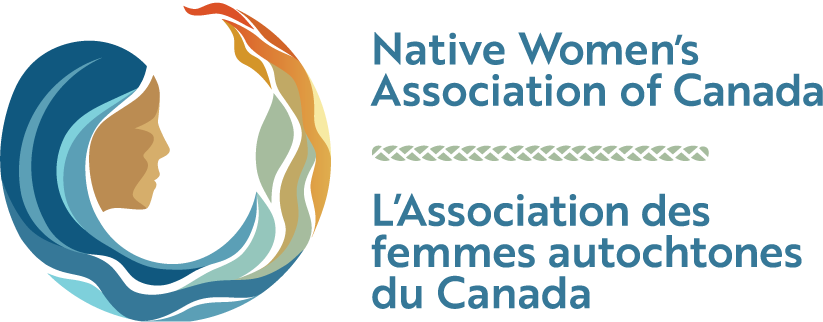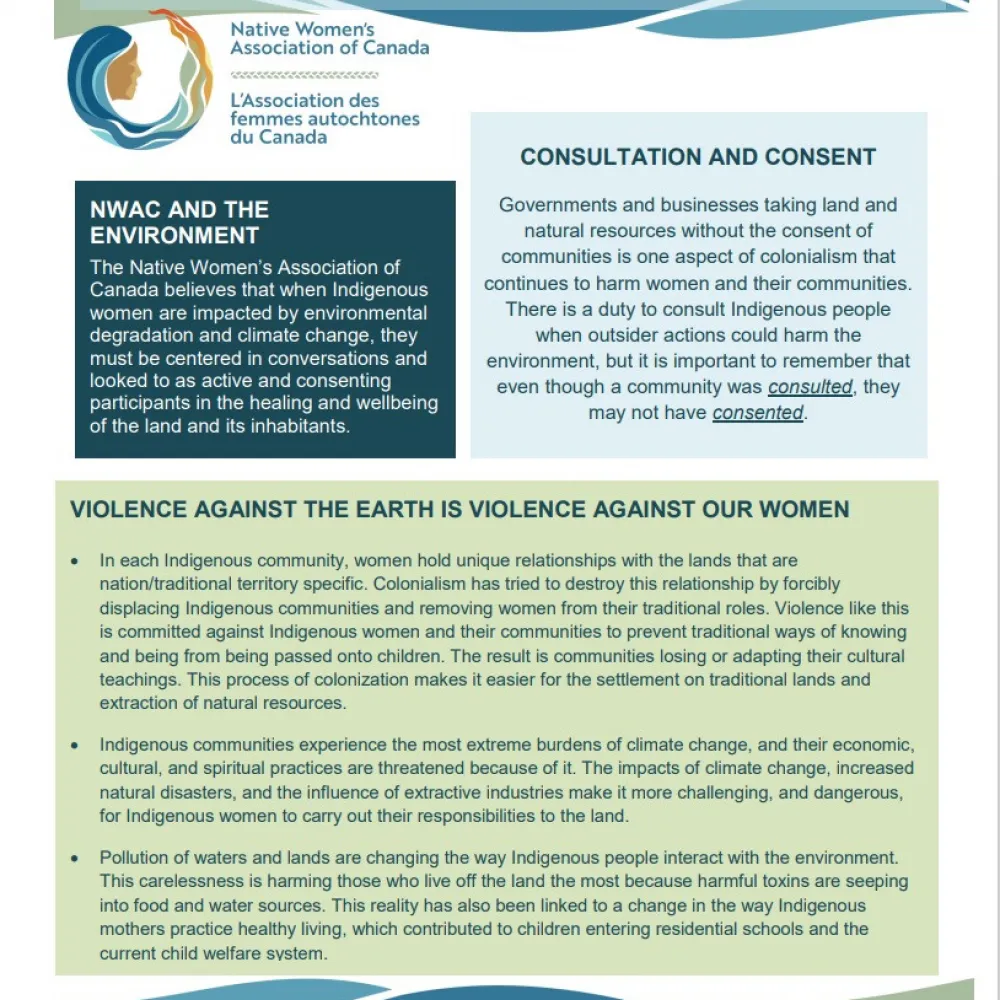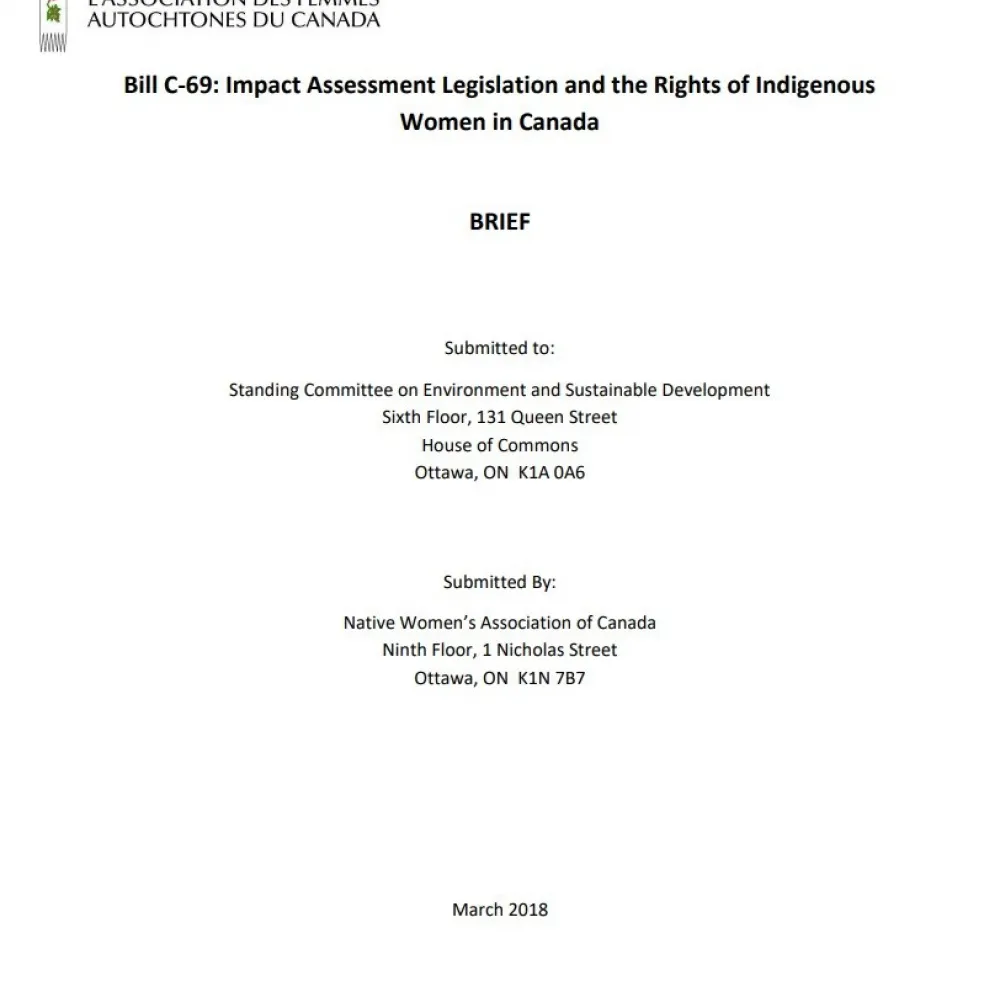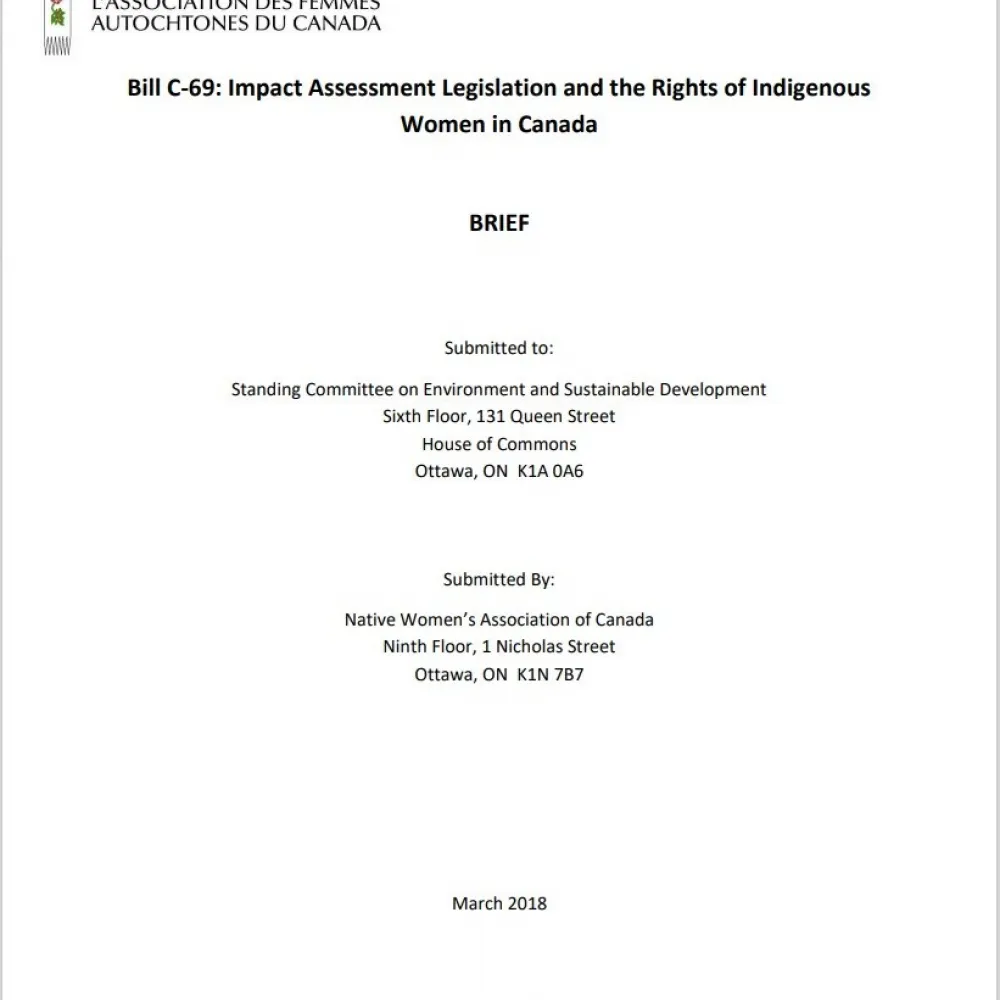Summary
Industrial projects often have disproportionately negative environmental, social, economic, and cultural impacts on Indigenous Women, Girls, Two-Spirit, Transgender, and Gender-Diverse People. They often face significant barriers in employment, workplace advancement, and business opportunities in energy and mining sectors. At the same time, Indigenous Women, Girls, Two-Spirit, Transgender, and Gender-Diverse People shoulder a disproportionate burden of risks from these projects. Industrial work camps can increase sexual violence risks, which is perhaps the most reprehensible impact of industrial projects.
NWAC made submissions to House and Senate standing committees studying Bill C-69 highlighting the importance of a culturally relevant, gender-based analysis in the impact assessment processes. NWAC took a leading role in ensuring that, for the first time, federal environmental legislation set out specific requirements for environmental decision-makers to consider impacts on Indigenous Women, Girls, Two-Spirit, Transgender, and Gender-Diverse People, specifically.
NWAC also prepared a culturally relevant, gender-based analysis of Canada’s Minerals and Metals Plan, for Natural Resources Canada. This document outlines negative and positive effects of mining activities on Indigenous Women, Girls, Two-Spirit, Transgender, and Gender-Diverse People.








